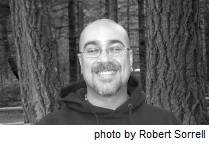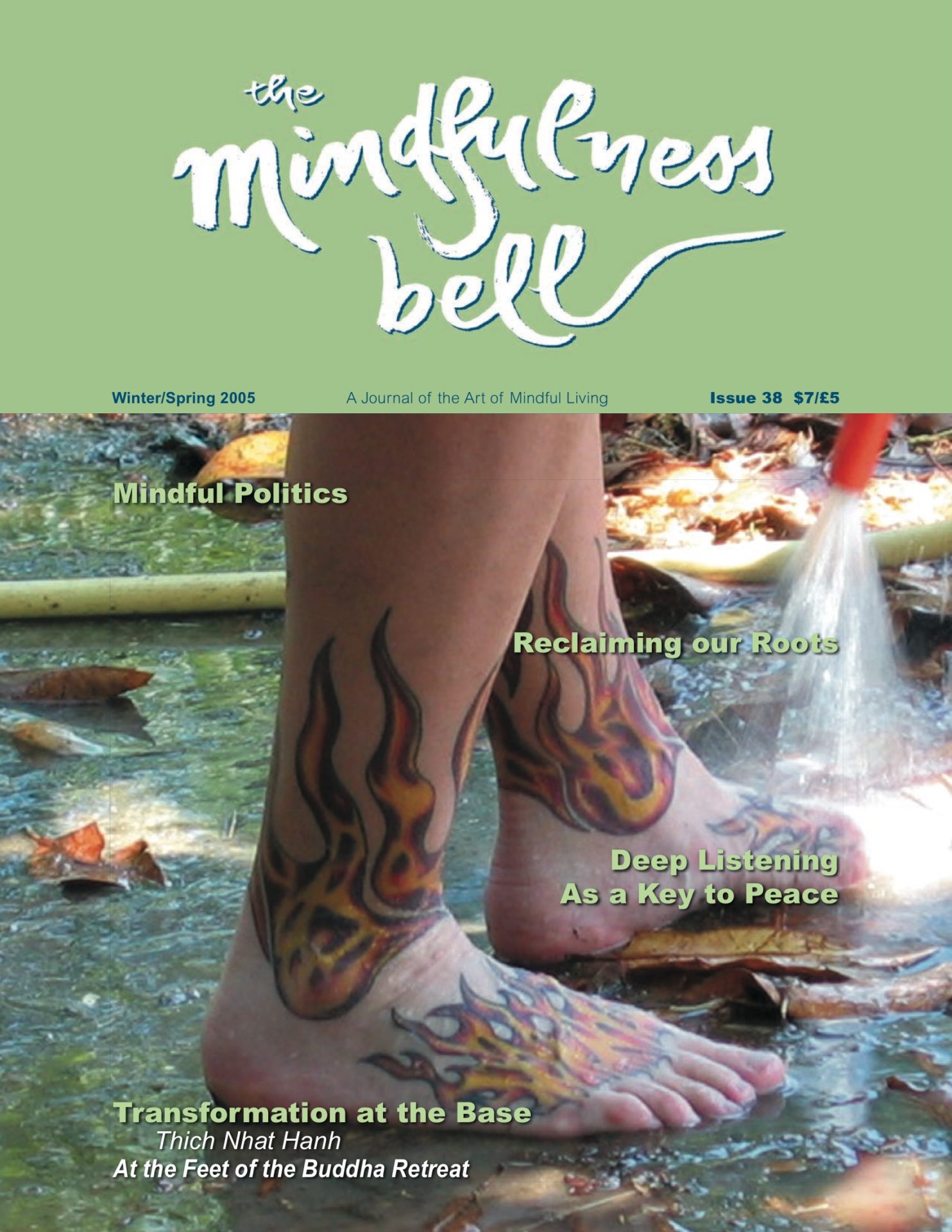
By Nathanial Cordova
We are encouraged not to shy away from suffering, to take a clear stand against oppression and injustice, to behave responsibly as citizens, and to work for the well-being of all living creatures. But how does our involvement in politics integrate into our practice?
In our tradition a direct admonition regarding the political comes in the Tenth Mindfulness Training of the Order of Interbeing,

By Nathanial Cordova
We are encouraged not to shy away from suffering, to take a clear stand against oppression and injustice, to behave responsibly as citizens, and to work for the well-being of all living creatures. But how does our involvement in politics integrate into our practice?
In our tradition a direct admonition regarding the political comes in the Tenth Mindfulness Training of the Order of Interbeing, Protecting the Sangha. This training reads:
“Aware that the essence and aim of a Sangha is the practice of understanding and compassion, we are determined not to use the Buddhist community for personal gain or profit or transform our community into a political instrument. A spiritual community should, however, take a clear stand against oppression and injustice and should strive to change the situation without engaging in partisan conflicts.”
But how do we advocate for certain political positions if we do not engage in partisan conflict? Don’t we run the risk of remaining ineffective if we do not stake out clear positions that align us with certain political orientations?
Not necessarily. Refraining from partisan conflict does not keep us from identifying with particular political orientations or having a standpoint. There are many ways to be politically conscientious and active without partaking of what often passes for political activity, but is actually conflict in disguise. For example, we can look deeply into the roots of the perceived conflict and division. As Thay has noted in Creating True Peace (Free Press, 2003), our enemy is misperception, and right action stems from right understanding. We can work at developing skillful means that allow our voices to be most effective. This begins with internal transformation.
For me, the issue of same-sex marriage has been a compelling way to begin this internal change. On a daily basis I challenge myself to be more understanding of the values, belief systems, and fears that drive those who oppose same-sex marriage. I’m also challenged to be more aware of the fears of those who support it, and how that fear shapes our responses, attitudes, and assumptions about those who disagree with us.
In controversial political issues it is easy to demonize the opposite side, disregarding their concerns and fears as unwarranted, silly, or full of malice. Such an approach increases polarization and anger. Instead, I try to maintain an invitational rhetoric that engages opponents of same-sex marriage.
Not Turning Away
It is also important not to let our fears or a pious concern over the “purity” of our practice or beliefs, lead us away from the political fray. On the contrary, we can seek to transform the political with our compassion and mindfulness. We can employ mindful abiding, looking deeply at the roots of suffering, and careful contemplation of skillful means to water seeds of lovingkindness.
What about the frustration and anger that frequently accompany our forays into the political arena? How do we protect ourselves from the toxicity of politics? A strong and consistent practice allows us to develop the energy of mindfulness so we can embrace such feelings when they arise. Educating ourselves about the political process and political events also means carefully nurturing a good sense of how and where we can be of service, and where we need to step back.
Anger and frustration are normal human emotions, and as they arise they can serve as mindfulness bells bringing us back to ourselves. What is important is how we respond and manage those feelings, and how we work to transform them. Mindful politics is at its best when we understand that the change we seek is greatest when motivated by love and compassion. We must remember to care for ourselves before, during, and after we enter challenging arenas. That is why developing healthy Sanghas within which we can find support, joy, and continued strength is an integral part of mindful politics.
Nathanial Cordova, Spacious View of the Heart, practices with the River Sangha in Salem, Oregon. He is an Assistant Professor in the Rhetoric and Media Studies Department at Willamette University.

